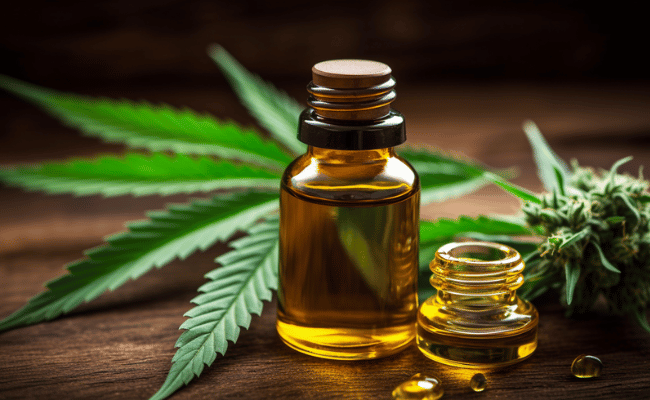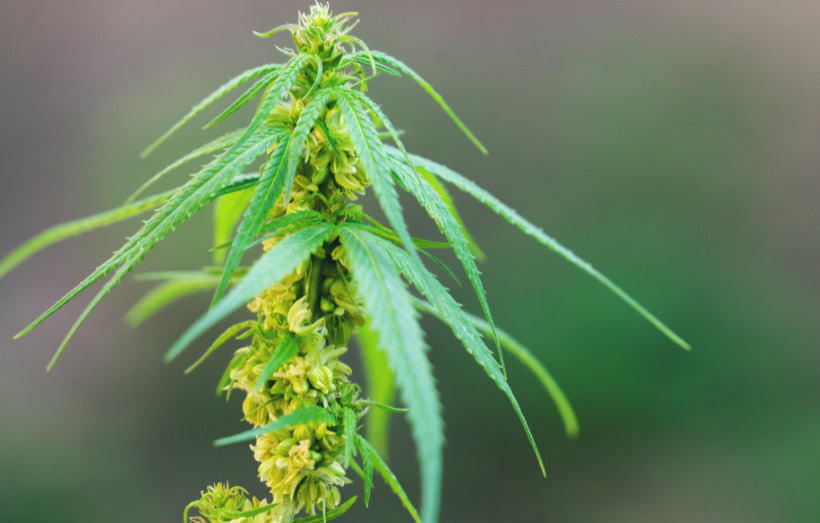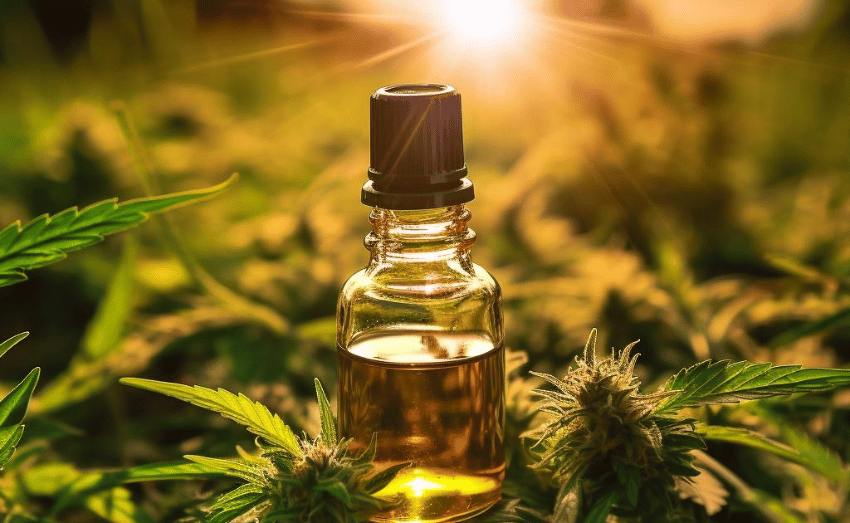CBD oil has become increasingly popular due to its potential therapeutic benefits. However, to ensure its longevity and maintain its potency, it’s crucial to store it properly. If you’re a beginner wondering, how should store CBD oil? Don’t worry; we’ve got you covered.
What is CBD Oil?
Cannabidiol (CBD) is a natural compound extracted from the Cannabis sativa plant, commonly known as hemp or marijuana. Unlike its psychoactive counterpart, delta-9-tetrahydrocannabinol (THC), CBD does not produce a high or altered consciousness. Instead, it has gained attention for its potential therapeutic properties, which have been investigated in numerous scientific studies.
CBD oil is a popular form of CBD administration. It is made by extracting CBD from the hemp plant and then diluting it with a carrier oil, such as coconut or hemp seed oil. The resulting oil can be taken sublingually (under the tongue), ingested, applied topically, or used in various products such as capsules, gummies, and skincare items.
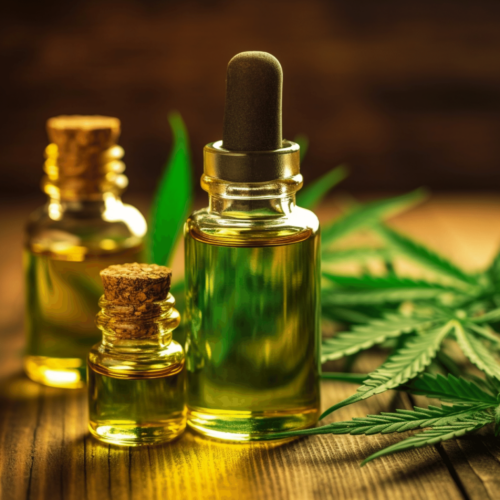
Potential Benefits of CBD Oil
Research into CBD’s potential health benefits is ongoing, but several studies have suggested that it may help with a range of conditions. Some potential benefits of CBD oil include:
- Pain Relief: Preclinical and clinical studies suggest that CBD may be effective in reducing pain, including chronic pain and pain associated with inflammatory conditions like arthritis.
- Anxiety and Stress Reduction: Preliminary studies indicate that CBD may help reduce anxiety and stress by influencing neurotransmitter systems and brain receptors.
- Neuroprotective Properties: Some research suggests that CBD may have neuroprotective properties, potentially benefiting conditions like multiple sclerosis, Alzheimer’s disease, and Parkinson’s disease.
- Anti-inflammatory Effects: CBD’s anti-inflammatory properties have been explored in various studies, suggesting potential applications in conditions such as inflammatory bowel disease and autoimmune disorders.
- Epilepsy Treatment: CBD has been approved by the U.S. Food and Drug Administration (FDA) for the treatment of certain types of epilepsy, based on clinical trials showing its efficacy in reducing seizure frequency.
It is essential to note that while the potential benefits of CBD oil are promising, more research is needed to fully understand its mechanisms of action and long-term effects. Additionally, the quality and potency of CBD oil can vary significantly among products, so it is crucial to choose a reputable brand and consult with a healthcare professional before using CBD oil for any health-related purposes.

Why is Proper Storage of CBD Oil Important?
CBD (cannabidiol) oil is derived from the hemp plant. Like many natural extracts, its active compounds can degrade over time when exposed to certain elements. By understanding the critical factors affecting its stability, you can ensure that your CBD oil remains effective and fresh for as long as possible.
What Affects the Potency of CBD Oil?
Several factors can influence the efficacy and shelf life of CBD oil. Some of the primary culprits include:
- Light: CBD is photosensitive. Studies have shown that exposure to light can lead to the degradation of cannabinoids, the active compounds in CBD oil1. Hence, direct sunlight or bright artificial light can compromise its potency.
- Air: Oxygen can also alter the chemical balance of CBD oil. The process called “oxidative stress” can lessen the oil’s potency over time.
- Temperature: Extreme temperatures, especially heat, can break down the cannabinoids and make CBD oil less effective.
- Moisture: Excess humidity can introduce mold and bacteria, making the oil unsafe to consume.
How Should I Choose the Right CBD Oil?
The first step in ensuring longevity starts with purchasing high-quality CBD oil. Always choose products that:
- Are sourced from reputable suppliers.
- Use CO2 extraction methods5.
- Provide a Certificate of Analysis (COA) that verifies the product’s purity and potency.

How Can I Store My CBD Oil?
Now that you know the factors that degrade CBD oil, here are some expert-backed methods to store it properly:
- Darkness is Key: Store your CBD oil in a dark place away from direct sunlight. A pantry, cupboard, or drawer is ideal.
- Maintain Cool Temperatures: While it doesn’t have to be refrigerated, CBD oil should be kept in a cool environment, preferably below 21°C (70°F). If you live in a particularly hot climate, the refrigerator can be an excellent place to store your oil.
However, if it becomes too thick or cloudy due to cold temperatures, simply let it sit at room temperature for a few minutes before use. - Limit Air Exposure: Always ensure the bottle cap is tightly sealed after each use. This prevents excess air from entering the bottle.
- Avoid Moist Areas: Keep your CBD oil away from places with high humidity, such as bathrooms or kitchens, to prevent mold growth.
- Use Clean Tools: If your CBD oil comes with a dropper, ensure it’s clean before dipping it back into the bottle. This practice helps avoid bacterial contamination.
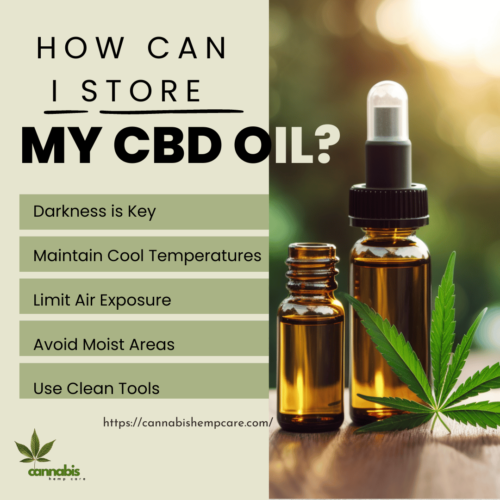
How Long Can I Store CBD Oil?
If stored correctly, CBD oil can remain potent for 6 months to 2 years. Over time, the oil might change in color, consistency, or smell. These changes can be indicators that the oil has started to degrade. However, always refer to the expiration date on the bottle for the best guidance.
Is There a Way to Tell If CBD Oil Has Expired?
Yes, as mentioned above, changes in smell, consistency, or color can indicate that your CBD oil is past its prime. Rancid or off-putting odors, especially, are clear indicators that the oil has gone bad. Always trust your senses!

Conclusion
In summary, storing CBD oil properly ensures you get the maximum benefits from the product. By understanding the factors that can degrade its potency and following expert storage advice, you can enjoy your CBD oil for longer.
Remember, it’s not just about the shelf life but preserving the therapeutic properties of CBD oil that matter most.
FAQs
What happens if CBD oil is not refrigerated?
While CBD oil does not necessarily require refrigeration, storing it in a cool, dark place can help preserve its potency and extend its shelf life. Exposure to light or heat can cause the oil to degrade faster, potentially diminishing its therapeutic properties. While not refrigerating CBD oil will not make it harmful, it may reduce its effectiveness over time.
How long does CBD oil last once consumed?
Once ingested, the effects of CBD oil can last anywhere from 2 to 6 hours, depending on various factors. These factors include the dosage taken, the method of consumption (e.g., sublingual, oral ingestion, topical), an individual’s body weight, metabolism, and the specific health issue being addressed. Furthermore, the frequency of use and any potential tolerance built up can also influence the duration of effects.
Does CBD oil go bad after opening?
Like many other oils, CBD oil can degrade and go bad over time, especially if not stored properly. Exposure to air, light, or heat can accelerate this process. While using “spoiled” CBD oil is not typically harmful, it may not provide the desired therapeutic effect. Signs of expired CBD oil include cloudiness, changes in smell, or a rancid taste. It’s advisable to use the product within one year of opening, although the exact shelf life can vary based on the brand and formulation.
Can CBD oil be used every day?
Yes, CBD oil can be used daily. Many individuals take CBD oil as a routine supplement for its potential therapeutic properties. However, the appropriate dosage and frequency of use can vary based on individual needs and specific health concerns. Before incorporating CBD oil into a daily regimen, it’s important to consult with a healthcare professional to determine the most beneficial dosage and to monitor for any potential interactions with other medications or underlying health conditions.
What does CBD oil do to your brain?
CBD interacts with the endocannabinoid system (ECS) in the body, which plays a vital role in maintaining physiological homeostasis. Within the brain, CBD has been shown to influence neurotransmitter systems and certain receptors, such as the CB1 receptor. Research suggests that CBD may help modulate the release of neurotransmitters, support neural regeneration, and provide neuroprotective effects. Studies have also indicated potential roles for CBD in reducing anxiety, managing mood disorders, and providing antipsychotic effects. It’s important to note, however, that while preliminary findings are promising, more comprehensive research is required to fully understand the range of effects CBD has on the brain and its associated health benefits.


































